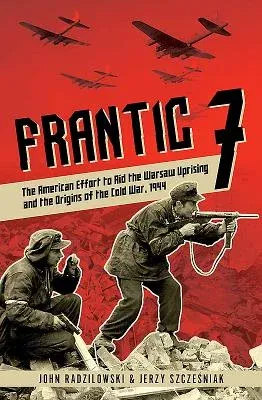The Frantic operations were conceived in late 1943 as Soviet forces
advanced westward into Ukraine, making Soviet airfields accessible to
long-range aircraft based in Italy and later England. American aircraft
hit targets in central Europe, refueled and rearmed at Soviet airbases,
then flew back to bomb additional targets. In addition to hitting Nazi
war industries, the political objectives of Frantic were to build closer
cooperation with the Red Army as thoughts turned to what would come
after the war finally ended. The first Frantic operation was in June
1944 and operations continued through July, despite continued Soviet
misgivings.
For the first two weeks after the Warsaw Uprising began on August 1,
1944, Soviet forces stood idle outside the city, and Stalin refused to
let the RAF land at Soviet airfields after dropping supplies to the
Polish freedom fighters. But eventually, the United States managed to
persuade him to let them use Frantic to drop supplies to the Poles.
On September 18, 1944, American B-17 Flying Fortresses, supported by
fighter planes, dropped arms, ammunition, medical supplies, and food
over the city of Warsaw. The assistance came too late and had no bearing
on the situation of the Polish freedom fighters in Warsaw. For many,
Frantic 7 remains a mere gesture to placate Western public opinion, but
the events of that day, and the courage of 1,220 airmen who risked their
lives to bring them aid, are still remembered by the Poles of Warsaw.
This book gives a full narrative of the Frantic 7 operation itself.
Using the firsthand accounts of the events from the freedom fighters on
the ground in Warsaw, the fates of the young aircrew, in particular
those of "I'll Be Seeing You" are told in detail. It also sets Frantic 7
in its political context, and explains how the diplomatic wrangles help
set the stage for the breakdown in relations between the Soviet Union
and the United States, and the beginning of the path to the Cold War.

